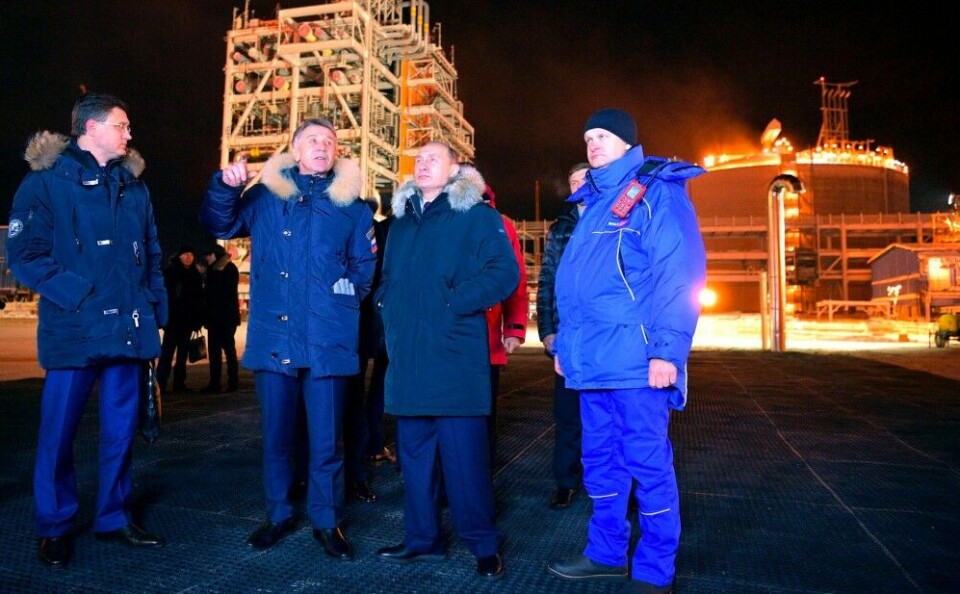
Putin is ready to "decarbonise Europe". With LNG from the Arctic
The President calls liquified natural gas a "green fuel" and offers full support to Novatek's plans for expansion in Europe.
It was yet another of the widely broadcasted meetings where President Putin sat down with one of his most loyal business leaders and discussed new and grand industry plans.
Leonid Mikhelson is a frequent guest in the Kremlin and his Novatek one of Putin’s favourite companies. Over the last years, the natural gas producer has obtained a significant number of license areas across the country and started the development of huge new projects, including in the remote parts of the Arctic. All with blessing from the Kremlin.
Among the new plants is the Yamal LNG, which now reportedly produces 14 percent more than its original production capacity. And by 2023, the first train of the Arctic LNG 2 is due to be up and running.
According to Mikhelson, the Arctic LNG 2 is proceeding ahead of schedule, and the third and final train that originally was to be ready in 2026 is now expected to be completed already in 2025.
Novatek today accounts for about five percent of global LNG production. And by 2035, the Russian LNG production is to reach 140 million tons, which will make the country a world leader in the field.
Both Leonid Mikhelson and Vladimir Putin agree that LNG is a “clean fuel,” that can be used to modernise the transport sector
In their meeting on the 17th May, Putin cherished Novatek for its “serious contribution to development of green energy,” and offered his full support to the company’s plans to build a network of LNG filing stations across Europe.
According to Mikhelson, about 2,000 tons of LNG is now every month delivered to filling stations abroad. Among them are about ten stations in Germany and Poland. And many more are reported to be under planning.
“This is what we call carbon-neutral fuelling in Germany,” Mikhelson underlined.
“Excellent,” Putin responded, and added that it all fits well with current plans for decarbonisation in Europe.
LNG filling stations are also being built in Russia, Mikhelson explained. And these are “even better”, because they also offer liquified hydrocarbon gas and compressed gas, he said.
Truck manufacturer KAMAZ is now reportedly building a big number of engines and vehicles that can operate with the liquified fuels.
However, the Kremlin’s positive perspectives about the future of LNG is unlikely to be shared by energy officials in Europe.
Natural gas was once touted as a bridge fuel that could lead to transition away from coal, but has come under increased scrutiny as governments chase more ambitious climate targets. The European Commission’s policy initiatives branded as the European Green Deal includes an ambition to make Europe climate neutral by year 2050.
The growing opposition to LNG is reflected also in the International Energy Agency’s new report Net Zero by 2050. The report published this week underlines that the building of a global energy sector with net-zero emissions requires “an unprecedented transformation of how energy is produced, transported and used globally.”
















